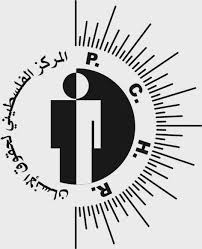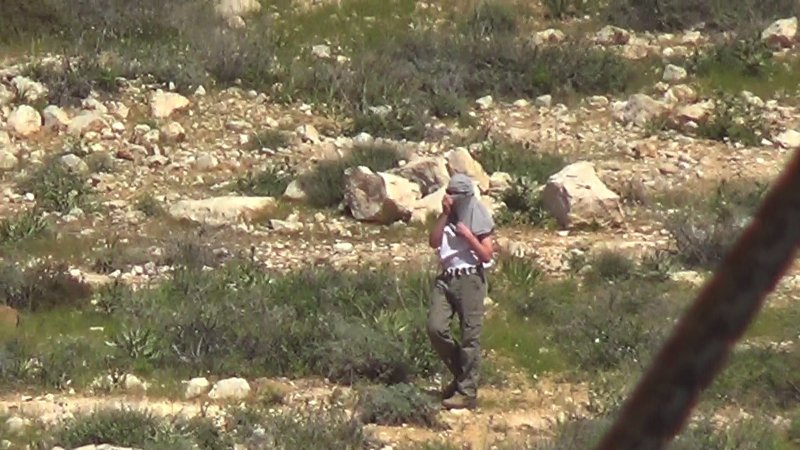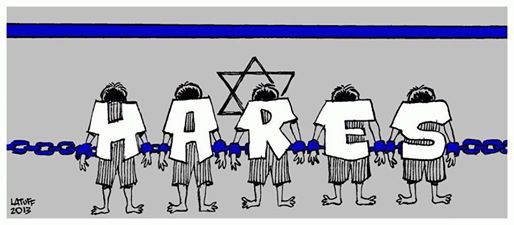Category: In the Media
-
Israeli forces kill 2 Palestinian civilians and armed group member and wound 12 civilians in Jenin refugee camp
24th March 2014 | Palestinian Center for Human Rights | Jenin, Occupied Palestine In excessive use of force, on Saturday, 22 March 2014, Israeli forces killed, 2 Palestinian civilians and a member of a Palestinian armed group and wounded 12 civilians and a members of the Palestinian National Security Forces in Jenin refugee camp, west…
-
Settlers from Havat Ma’on attacked Palestinian shepherds in two different places at the same time, in the South Hebron Hills
22nd March 2014 | International Solidarity Movement, Nablus Team | Bruqin, Occupied Palestine On March 20, four settlers from Havat Ma’on illegal outpost attacked, in two different places at the same time, two internationals and seven Palestinian shepherds while grazing flocks on their own land. The settlers were armed with a gun and slingshots. At…
-
One year on: the Hares Boys
18th March 2014 | The Hares Boys | Occupied Palestine Yesterday the Hares Boys, who are being charged with 20 counts of attempted murder with no evidence whatsoever, have been in an Israeli prison for one year. Now is more important than ever to fully understand the circumstances surrounding the unlawful arrest and imprisonment of Mohammad Suleiman, Ammar…



